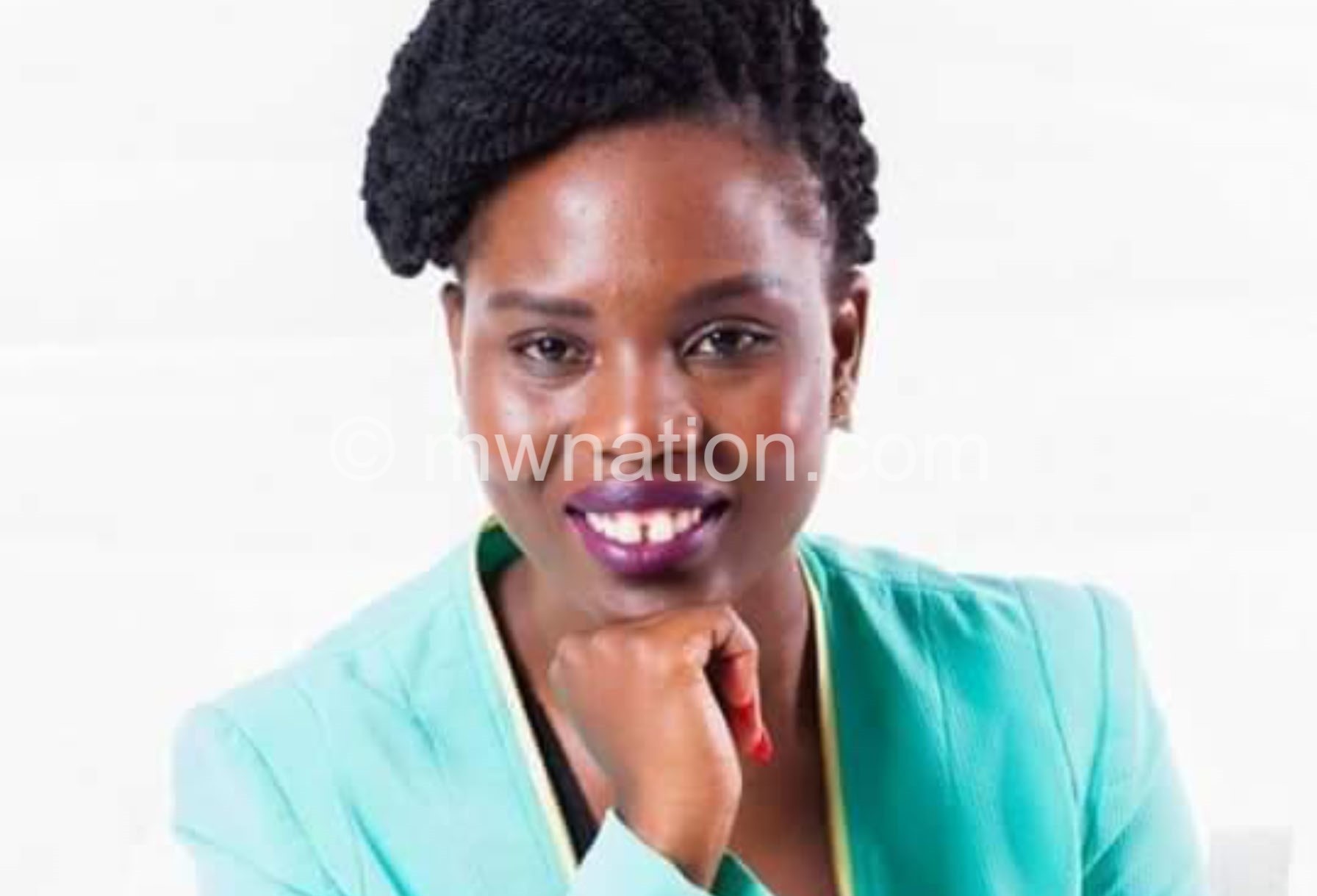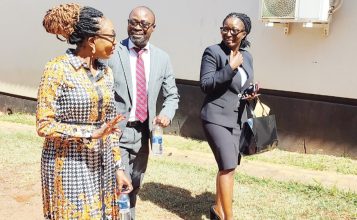Teresa Ndanga: New Misa Malawi chairperson
Born on 29 April, 1982, many would remember Teresa Ndanga as the woman who braved it and asked President Peter Mutharika the questions that everyone wanted answered on his return from the United Nations General Assembly (UNGA) in 2016, amidst boos from the DPP supporters.
Clearly she is someone who always achieves what she sets her mind to.
Now, the first ever female chairperson of the Media Institute of Southern Africa (Misa) Malawi, Ndanga points out that as a principle, she just never gives up.
She admits it was not easy launching her journalism career amidst so many experienced journalists when she joined Zodiak Broadcasting Station (ZBS) in 2007.
“At the beginning, I felt so small among the big names, but I figured I could turn the challenge into an opportunity. I, therefore, utilised every opportunity to learn from the experienced journalists around me; people I had listened to on the radio and admired. That change in mindset turned things around for me. I got my first award in the very first year of my employment,” she says.

To this day, Ndanga has received local and international awards; including the CNN Health Award in 2010.
While it is her name attached to all these awards, she says there are brilliant journalists behind this success, including colleagues who have helped during the conception of ideas, investigations and final productions.
Last born in a family of six, the newly elected Misa Malawi chairperson was born in Zimbabwe where her father worked. They returned to Malawi when she was nine.
From going to a private school in Zimbabwe, she had a rude awakening back home, walking for over one and a half hours to get to the nearest school.
“Life was completely different. We could leave for school without taking breakfast and without any packed meal or snack for break time. But even at that young age, I knew that wasn’t the life I wanted to live for long. I didn’t want to dwell on blaming my father for leaving a good job and bringing us into a life of poverty. So, I promised myself that I would do whatever I could to change the situation I was in,” she recalls.
Ndanga was selected to St. Mary’s Secondary School in Zomba, from where she was selected to study Journalism at the Malawi Polytechnic.
“Journalism was my first choice and a career I had dreamed of from primary school. After graduation, I got employed by Zodiak as a reporter. I have been rising through the ranks in the last couple of years and now I head the newsroom, supervising around 40 journalists across the country and managing three sections in my department; radio, online and television,” Ndanga explains.
In 2014, she went for her Masters Degree in Public Administration at Harvard Kennedy School in the United States of America, graduating in 2015.
She recalls that her father always challenged her to choose a unique profession that suited her character and as she grew up, listening to Eunice Chipangula on Malawi Broadcasting Corporation (MBC) radio was an inspiration.
Ndanga developed her love for the profession that she knew so little about at that time and as she sat for her Standard Eight examinations, she knew what career she would get into.
“The introduction of a journalism course when I was in my junior classes of secondary school was a direct answer to my dreams. I literary jumped in excitement when one of my teachers told me about the introduction of journalism at the University of Malawi.
“I began to research what I needed to be good at in school if I was to be accepted in the programme. It, therefore, did not come as a surprise when I was selected in 2002 and it was a great relief and accomplishment,” she explains.
She acknowledges that she was a bit worried about hunting for a job after graduation, but thanks to an internship programme that placed her at Zodiak in 2005; it accorded her the opportunity to showcase her skills, making it easier for the company to take her on upon graduation.
The mother of a five-year-old daughter and wife to Eustace, Ndanga says aspiring for higher positions should become a culture for women just as it is for men.
“If excellent performance in mixed gender schools is viewed as a boys’ thing, we will have problems changing mindsets for girls to aspire for higher positions when they grow up. When I was young, no slightest thought of my gender crossed my mind as a deterring factor for my success.
“Such has been the case throughout my career. When as a reporter I was promoted to the position of editor in 2010, I faced the challenge with zeal to prove that my age, gender and three-year experience would not prevent me from performing well,” she says.
Speaking on the just ended Misa Malawi chairmanship race which she conquered, Ndanga says she did not run as a woman, but presented herself believing that she had the capabilities to effectively lead the change that the journalism profession in Malawi needs.
“Women vying for top positions should indeed be bold and develop tough skin because this puts them in a position of vulnerability. Where opponents cannot find crucial facts to discredit a female contestant, they look for anything else. What would be highlighted as a female candidate’s weaknesses may not be a question at all for a male contestant,” she notes.
About the journalism profession in the country, the new broom believes there is a hardworking crop of journalists currently doing everything possible to execute their duties amid a lot of challenges.
“We have all been witnesses to the impact of journalism in Malawi; journalists have become the catalysts for change in so many of the country’s sectors. We, however, need to do more in creating a conducive environment for journalists to operate in,” she observes.
As Misa Malawi chairperson, she says she will do everything possible to ensure that the newly established Access to Information Law is fully utilised, noting that underutilising it would be self-defeating of the very purpose journalists and other sectors of society spent years campaigning for the enactment of the law.
She also notes that for so long, the welfare of journalists has been neglected.
“As we fight for the welfare of others, let us not forget our own. Let us not pretend all is well. We need to start a conversation that would lead to an improved general welfare of journalists in Malawi. Improvement of standards in the industry depends on several other factors, one of which is the issue of the journalists’ wellbeing,” she says.
She also envisions a more impact oriented journalism with all the brilliant journalists Malawi is blessed with, some of which cannot perform to their optimum because of resource constraints.
“We may be in difficult financial times as media institutions, but we need to seek creative means to sustain our cause of championing the change that this country needs,” she adds.
While commending Malawi for doing so well in media diversity, Ndanga notes that the country is still lagging behind in achieving inclusivity.
She recommends a working environment that is welcoming of young journalists and community journalists while creating even more room for experienced journalists to grow and nurturing student journalists to suit the needs of the industry. n





